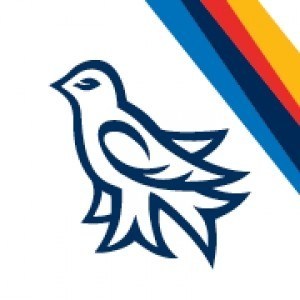Photos of university / #universityofvictoria
Designed with working professionals in mind, the Master of Arts in Community Development (MACD) will build and develop your capacity to become a successful leader in the civil society and social economy, whether you work or volunteer in non-profit, co-operative or community economic development organizations either locally or internationally. Throughout the program, you will apply new skills and knowledge to an ongoing research project for a client in the community development sector.
The program's unique focus on the application of learning outcomes means that you will graduate:
- with a comprehensive and systematic understanding of the historical and political underpinnings, key concepts, and spheres of practice embedded in the social economy and civil society.
- equipped to lead transformative change efforts.
- able to build and manage effective projects, organizations, enterprises and networks.
- able to demonstrate initiative, leadership, and originality in identifying challenges and opportunities for their organizations and the broader social economy.
- able to understand key global trends, challenges, threats and opportunities communities face and strategies to address them.
- able to engage in a community-based approach to social change and social justice.
- Anchoring a Change Agenda: Foundations(online and on campus)
- Leadership in Organizational Development for Communities(online and on campus)
- Practices and Perspectives on Forging Change(online)
- Community Based Research: Foundations(online)
- Enterprise Development for Community Benefit(online)
- Leadership, Management and Governance within Organizations(online and on campus)
- Managing Organizations, Systems and Community Transformations(online and on campus)
- Program and Project Design, Management and Evaluation(online)
- Elective
Requirements
- A baccalaureate degree (or equivalent from another country) from an accredited and recognized institution in a relevant field of study
- A grade point average of 5.0 (B) in the work of the last two years (30 units) leading to this baccalaureate degree
- A minimum of four years of professional experience, paid or volunteer, in one of the four streams of the broader community development sector (community economic development, cooperative, non-profit, and international )
- Admission as a mature student - four years after completion of a baccalaureate degree, applicants whose grade point average is below 5.0 (B) may be admitted as mature students, provided they have four years relevant professional experience since completion of their degree. Submission of a résumé is required to determine eligibility as a mature student. Such recommendations must be approved by the Dean of Graduate Studies.
- Complete the online application form.
- Assessment reports are required from a minimum of two referees. If you have graduated within the last five years two academic references are required. If it has been more than five years since you last attended a post-secondary institution, we recommend that you include the email addresses from three current or former employers or professional references who are familiar with your work in place of academic referees. The names and email addresses of your chosen assessors are required when you submit your application. To strengthen your application, we recommend that your referees attach a Letter of Reference in addition to the Assessment Report.
- Submit official academic transcripts from all post secondary institutions attended. Official transcripts are those which are received directly from the post secondary institution OR are received in the institution's sealed, stamped envelope.
- Submit a detailed résumé/CV of background information, professional or other relevant experience.
- Submit a 750-1000 word statement of intent outlining why you are seeking an MA in Community Development and how the degree relates to your career plans, personal values and goals.
- Submit other evidence of suitability for admission that you feel is relevant (e.g., academic records from non-degree courses).
- Applicants for admission whose first language is not English and who have not resided in Canada or any country where English is an official language of the country (as determined by the Graduate Admissions and Records Office) for at least three consecutive years immediately prior to the beginning of the session applied for must demonstrate competency in English. Most applicants qualify by providing results of the Test of English as a Foreign Language (TOEFL) or the International English Language Testing System (IELTS). The minimum score for the TOEFL is 610 on the paper-based test and 102 on the Internet-based test. Applicants who do not possess a Canadian undergraduate degree will be required to write and submit official results of the Graduate Management Admission Test (GMAT).
- Upon receiving a written offer of admission from the School of Public Administration, applicants accepted to the MACD program are required to pay a non-refundable confirmation deposit of CAD $400; instructions for submitting this deposit, including timelines, are contained in the offer letter.
Want to improve your English level for admission?
Prepare for the program requirements with English Online by the British Council.
- ✔️ Flexible study schedule
- ✔️ Experienced teachers
- ✔️ Certificate upon completion
📘 Recommended for students with an IELTS level of 6.0 or below.
Scholarships
- Bursaries
- UVic awards and fellowships
- University of Victoria Graduate Donor Awards
- Canada Graduate Scholarship
- Mackenzie King Memorial Scholarships



